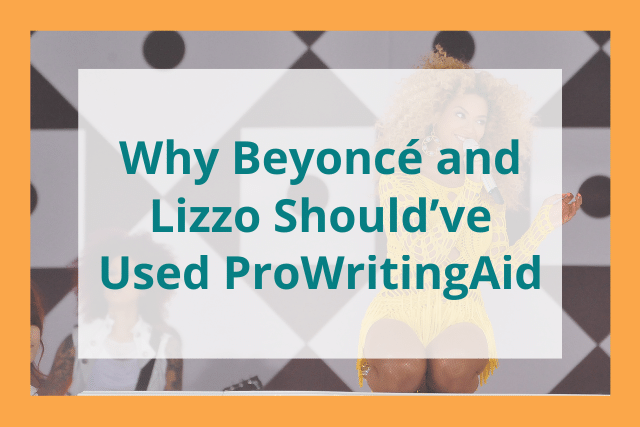
Song lyrics can be an incredibly powerful medium of communication. However, the inclusion of slurs, whether the writer is aware of their full meaning or not, can offend and isolate listeners and communities.
Just days after the release of Beyoncé’s highly anticipated album Renaissance, disability rights advocates have criticized the star for using an ableist slur in one of the tracks.
The song “Heated” features the line: ”Sp-zzin' on that ass, sp-zz on that ass.”
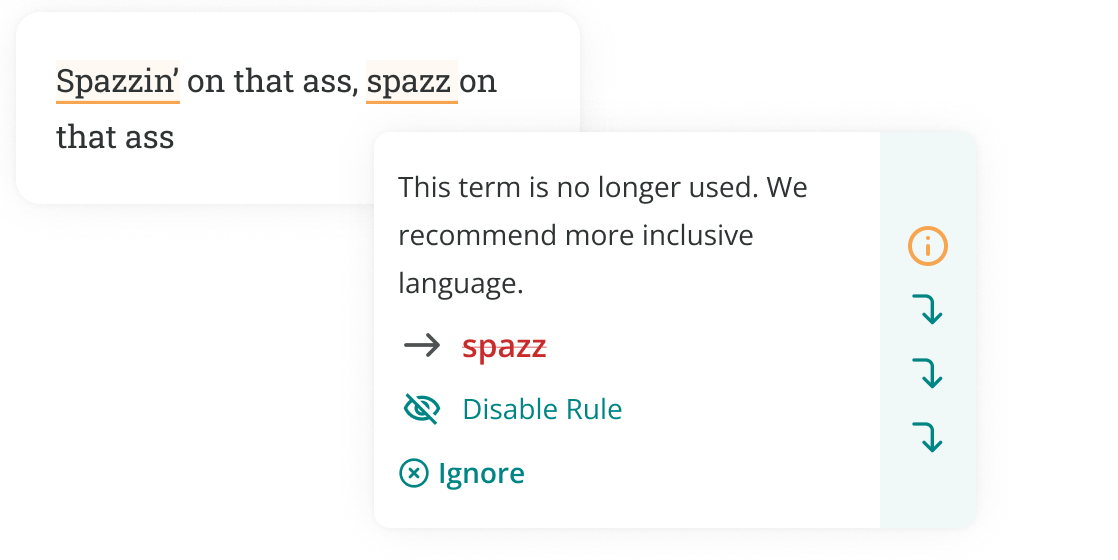
Sp-z is an offensive word derived from the word “spastic.” It first entered the English Language as a medical term in the 18th century to describe a person “afflicted with spasms.” It was later used to refer to a form of cerebral palsy known as spastic diplegia.
Since the late 20th century, it’s become a colloquial slur to describe losing “physical or emotional control” and is considered extremely offensive towards the disabled community.
A month before Beyoncé’s controversial album release, singer Lizzo was also in the headlines for using the same derogatory word in the song “Grrrls.” It included the line: “I’m a sp-z. I’m about to knock somebody out.”
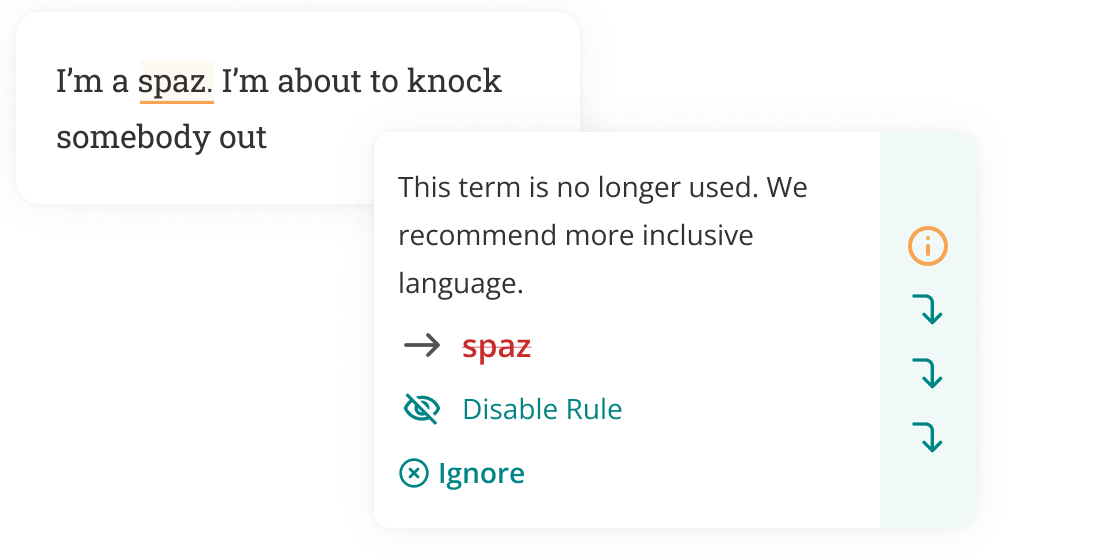
Lizzo has since removed the offensive term from the song’s lyrics, while a spokeswoman for Beyoncé stated: “The word, not used intentionally in a harmful way, will be replaced.”
Whether a word is used with or without the knowledge of its full meaning, ableist slurs can be incredibly offensive to people with disabilities and their use should be avoided. However, many of us may be unsure what the correct words to use in a situation are and may unintentionally use derogatory terms when we don’t mean to.
If Beyoncé and Lizzo had run their lyrics through ProWritingAid’s Style Report, it would have drawn their attention to the offending terms and offered suggestions to ensure their songs were respectful to all audiences.
What Is Ableist Language?
Ableist language refers to words or phrases that exclude, marginalize or devalue people with disabilities or people who are neurodiverse. This could include offensive slurs or indirect, and often unintentional, microaggressions.
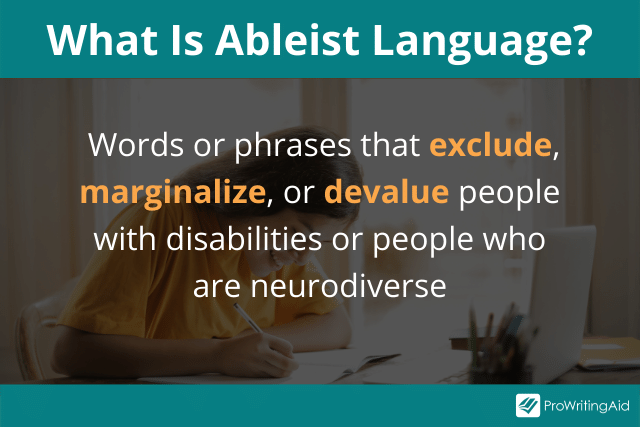
Ableist language is frequently found in slang and colloquial phrases, for example:
- I’m so OCD!
While some terms may not immediately appear offensive, it’s important to remember that many commonly used words and phrases have a difficult history and discriminatory undertones.
Language that equates a negative experience to a disability can also be problematic, such as:
- That break-up really crippled me.
Ableist language can creep into the terms we use to describe people from the disabled and neurodiverse communities too.
Referring to someone as wheelchair-bound can be considered offensive and degrading as it implies that a person’s wheelchair is a limitation. Meanwhile the phrase wheelchair user is more human-centric and removes the inference of restriction.
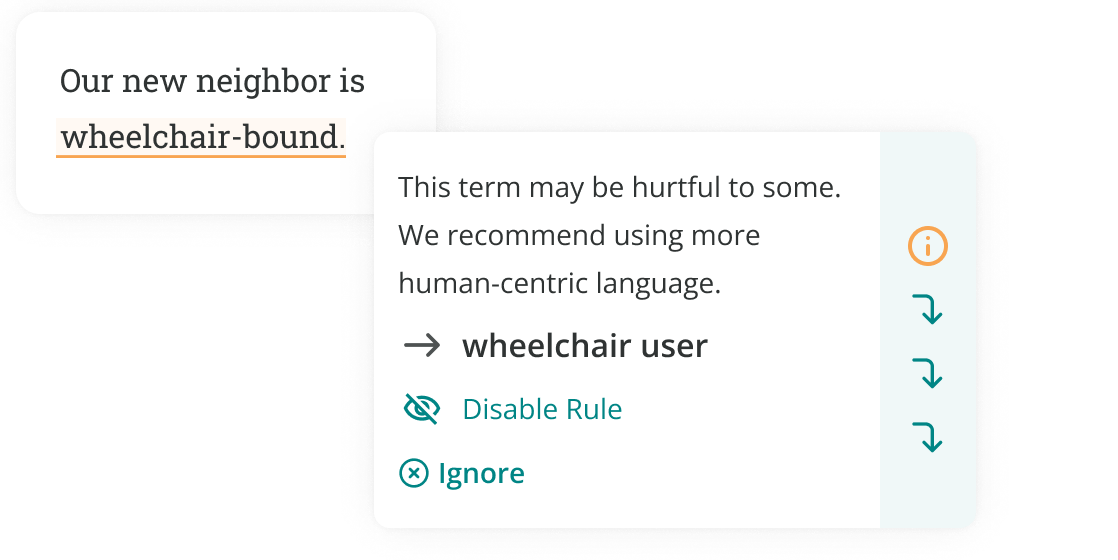
Why Is Inclusive Language Important?
Inclusive language is language that promotes equality and respect between different communities of people. It’s important to use inclusive language in your writing so that all audiences feel properly acknowledged and appreciated.
Using inclusive language means being considerate of different genders, different cultures, people with disabilities, neurodiverse people, and people from the LGBTQIA+ communities.
One factor to consider when making your writing inclusive is the historic baggage behind a word. The term Eskimo is considered derogatory because of its racist past. It was widely used as an umbrella term by non-native colonizers to refer to local peoples in areas including Alaska, the Arctic, Siberia, Canada, and Greenland.
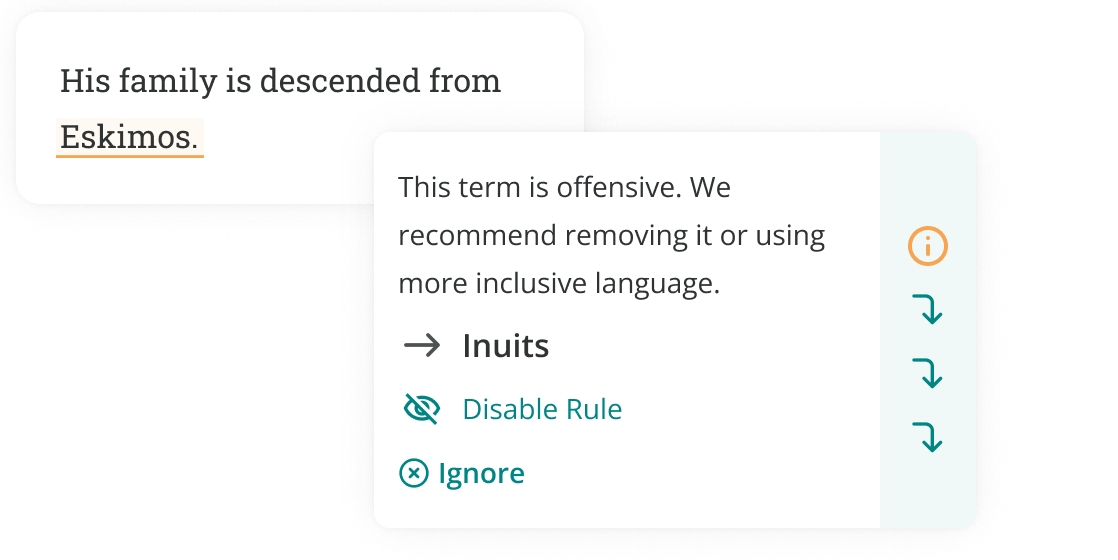
Instead, Inuit, Yupik and Aleut are examples of respectful terms to use when talking about indigenous peoples in these specific regions.
There are also some instances where it’s inappropriate to use a word or phrase if you’re not part of that community. For example, the noun "dyke" is usually reserved for use by people who identify as LGBTQIA+ and if you’re not a member of that group, using this term can be considered offensive.
This is because the term originated as a homophobic slur, but it’s more recently been reappropriated by the LGBTQIA+ community.
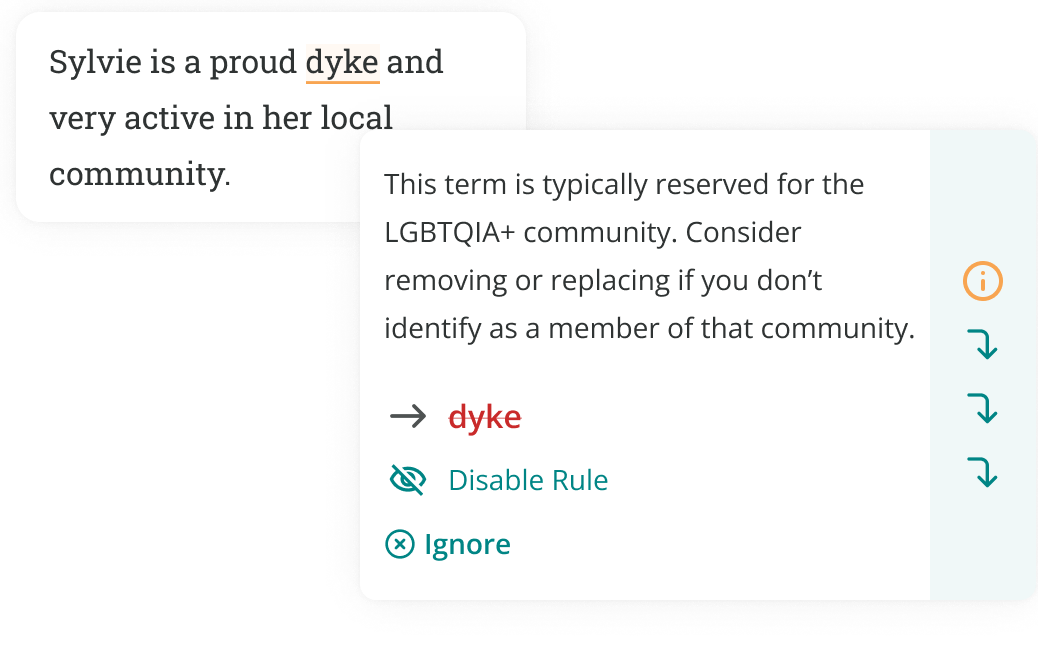
If you want to ensure that your writing is considerate of all audiences, ProWritingAid can help. Our Style Report can detect inclusivity issues relating to gender, disability, race, and the LGBTQIA+ community in your work and highlight areas where you may want to use more inclusive language.
Examples of Inclusive Language
- Use "firefighter" instead of "fireman"
- Use "sex reassignment surgery" or "transition" instead of "sex change"
- Use "wheelchair user" instead of "confined to a wheelchair"
- Use "Native American" instead of "Red Indian"
- Use "server" instead of "waitress"
Do You Want To Make Sure You’re Using Inclusive Language?
ProWritingAid is free to use and will help ensure that you never inadvertently use hurtful or ableist language in your writing. Try it for free today!
Headline image: Asterio Tecson / Flickr via Wikimedia Commons (CC BY-SA 2.0)

